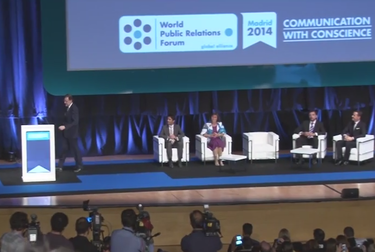
Popular folklore often has it that the PR profession is either made up of devious manipulators with more power than responsibility or self-styled gurus with more opinions than evidence.
Last week’s World Public Relations Forum in Madrid did its best to dispel both stereotypes.
The 3-day event chose ‘Communications with Conscience’ as its main theme and kicked off with a one-day Research Colloquium to get at the facts.
| The current crisis of confidence in political and business leadership certainly added urgency to the Forum’s objectives. The Chair of the Global Alliance for public relations and communications management - which organises the biennial Forum - admitted she was a “worried woman”. But Anne Gregory is also an optimist. She thinks that the profession has an historic opportunity to lead from the front when it comes to re-establishing trust in organisations. | 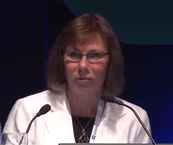 |
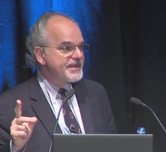
Unfortunately, Gregory’s other main passion - communication research - suggests that that leading role is still a fair way off.
Jerry Swerling of Southern California University presented the findings from a 6-nation comparative survey on Globally Accepted Practices (GAP) in the PR profession and the results were not that encouraging. As the table below shows, at the moment, communication managers seem to have very little involvement in corporate ethics or governance and standards.
Jerry Swerling of Southern California University presented the findings from a 6-nation comparative survey on Globally Accepted Practices (GAP) in the PR profession and the results were not that encouraging. As the table below shows, at the moment, communication managers seem to have very little involvement in corporate ethics or governance and standards.
Assuming that PR professionals actually want to lead in the re-establishment of trust in their organisations, Swerling’s findings may also give a hint as to why they aren’t doing so. The table shows that neither does the profession spend much time looking at research or analysing data.
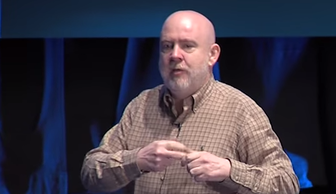
That’s important because, according to Paul Holmes of the Holmes Report, you can’t be a leader if you don’t have any good data to support your case.
But if communications managers haven’t got that leadership role, it may not be their fault. After all, getting data that untangles the role of communication in changing behaviour from the myriad of other possible economic, political and social factors is all but impossible.
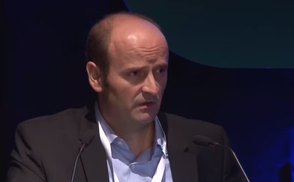
However, David del Val Latorre, the head of Telefónica’s R&D department, thinks that is about to change.
He told the forum that the arrival of the Internet of Things, with its associated technology of wearable sensors and big data analysis, is about to arm communicators with the data they have long been missing
Whether such technology will actually provide the insights it promises is open to question but the ability to watch and analyse what everyone is doing, all the time, certainly has some obvious implications for privacy.
It could be that the same tools which provide communicators with the opportunity to be taken seriously as leaders in their organisations will also make it even more challenging for them to re-establish trust in that same organisation.
It could be that the same tools which provide communicators with the opportunity to be taken seriously as leaders in their organisations will also make it even more challenging for them to re-establish trust in that same organisation.
For a more general overview of the 2014 World Public Relations Forum in Madrid, please see the following video report; produced as part of Reportarte’s audiovisual coverage of the event.

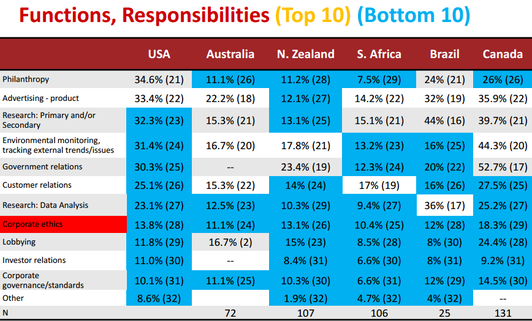
 Canal RSS
Canal RSS
